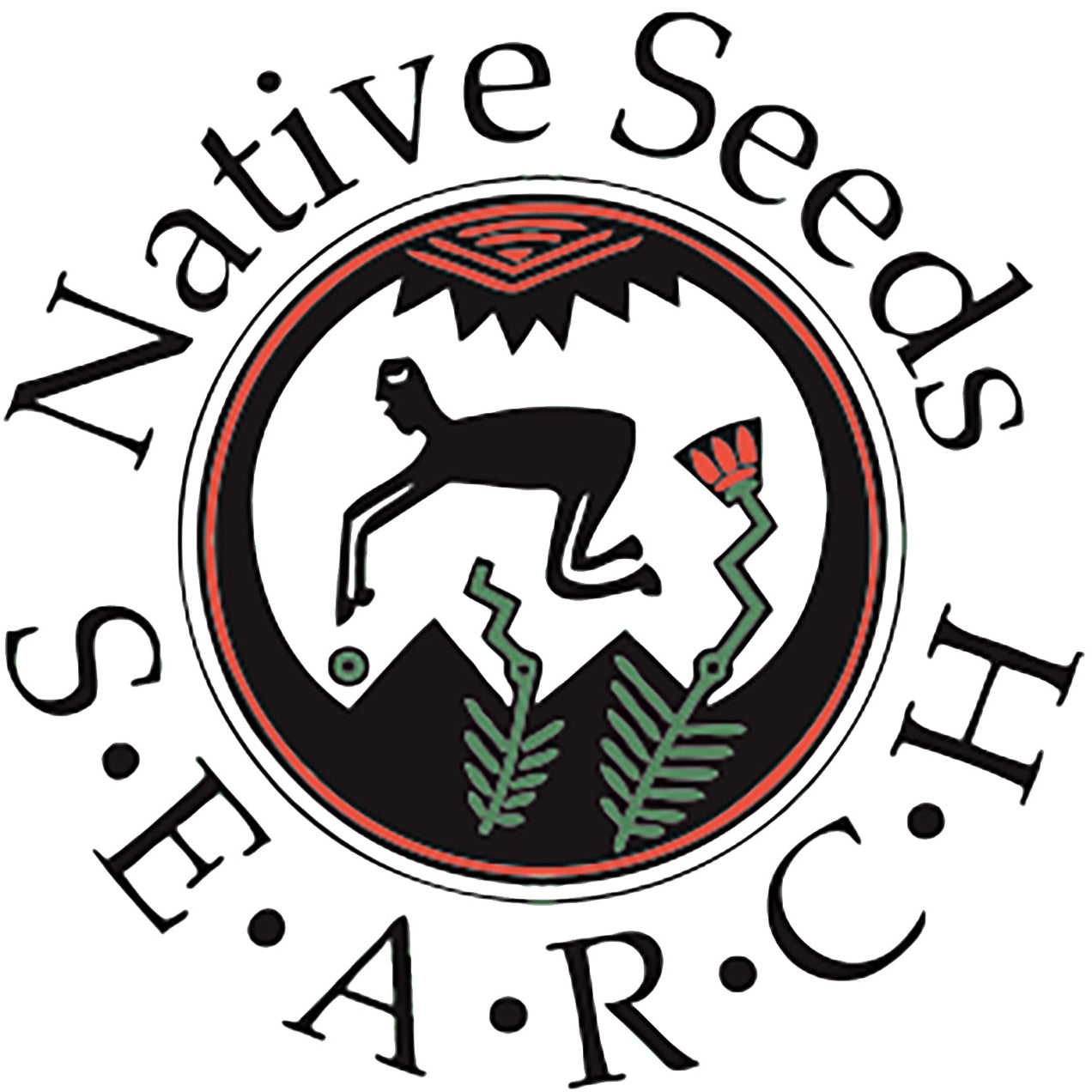
Article by Melissa Kruse-Peeples, NS/S Education Coordinator, published September 27, 2016.
Last weekend Native Seeds/SEARCH hosted over 100 participants at our Conservation Farm in Patagonia, Arizona for a field day. The event provided an opportunity for people to learn more about growing crops for seed, seed processing, heritage varieties, aridlands agricultural techniques, as well as enjoy beautiful weather and setting of the farm.
Visiting a seed conservation farm provides a different view of growing than a more traditional farm focused on food production. Native Seeds/SEARCH conserves over 1,900 different crop accessions from 100 different species. At any given time between 30 to 200 different varieties are being grown. The farm, nearly 60 acres in size, is never fully under cultivation as crops are isolated by space to prevent unwanted cross-pollination. Some crops are grown in mesh pollination cages and numerous bags and tags are marking specimens for seed saving.
The field day was an opportunity for the NS/S Conservation Interns to share what they have learned about growing and stewarding seeds. Our Conservation Interns, Julius Badoni (Navajo), Robyn Pailzote (White Mountain Apache), and Laura Olivera (Oxacca), are spending 6 months learning at the farm and stewarding seeds from planting to seed harvest. They work closely with Farm Manager Morgan Parsons and Farm Technicians Benjamin Gonzales and Raymond Antone. They are integral members of the NS/S team.

NS/S Intern Laura Olivera demonstrated how to tell the difference between male and female squash flowers. Laura and other interns practice controlled hand pollination of squash to ensure the production of true-to-type seeds. There are numerous varieties of squash growing in any given season. While they are planted in separate fields the abundant insect communities have the potential to transfer pollen between varieties. Practicing hand pollination is one way we ensure genetic purity of the variety.

Other strategies, such as the use of pollination cages, are also used to prevent unwanted cross-pollination of varieties. The mesh tents are used to grow crops including beans, chiles, and tomatoes. While these species are largely self-pollinating, diverse insect communities can transfer pollen between varieties. Growing inside these cages keeps insects away during flowering and ensures true-to-type seeds are produced. Isolating by planting time and space are also effective ways of preventing cross-pollination. Chris Hohnanie, a former intern with NS/S, discussed other strategies for preventing cross-pollination. He and his family at Hopi practice staggered planting. They plant different varieties of the same species every few weeks. This prevents the flowering periods of varieties of the same species from overlapping. They also isolate different varieties in different parts of the field.

NS/S Intern Julius Badoni discusses the management of his field with visitors. Like most growers, the NS/S farm faces many challenges including fertility loss, javalinas, harmful insects, ground squirrels, and bindweed. The NS/S farm is an organic farm. While we are not certified organic by the USDA, we practice a high level of conservation techniques to ensure the health and well being of all biodiversity including the crops, soils, water, wildlife, and insects. The field day allowed the farm crew and participants to discuss different ways to grow crops without the use of chemicals or external inputs.

Participants were given the opportunity to taste some of the varieties growing this year including chiles, basils, tepary beans, and squash. The standout favorite was Magdalenda Big Cheese Squash. There was also a wonderful pea dip prepared by pureeing Tarahumara peas, I'itoi Onions with olive oil and lemon juice.

The field day provided opportunities for all ages. There were dozens of kids in attendance and they enjoyed playing with the farm cat Frijol or picking and eating tomatoes. Another favorite activity included making and decorating seed packets to take home some giant Hopi Black Dye Sunflower seeds to plant in their own gardens.

During the event, various seed processing techniques were demonstrated including wet seed processing of Mayo Kama Squash and dry seed processing of Tohono O'odham U'us mu:n Cowpeas. At NS/S we use many low tech seed processing procedures that are easy for the home gardener such as the use of colanders for wet seeds like squash. We also have larger scale seed processing equipment including a twin screen seed clipper and automatic bean stripper that can process and clean large batches of seed crops. To view the seed clipper in action visit the Native Seeds/SEARCH YouTube Channel.
Thank you to all who came out to visit the farm during the field day! We support your seed saving efforts through educational opportunities such as the field day, workshops, and our new booklet Seed Saving in the Southwest. Stay tuned for news about future field days. Together we can all protect and preserve arid adapted crop seeds to nourish a changing world.
